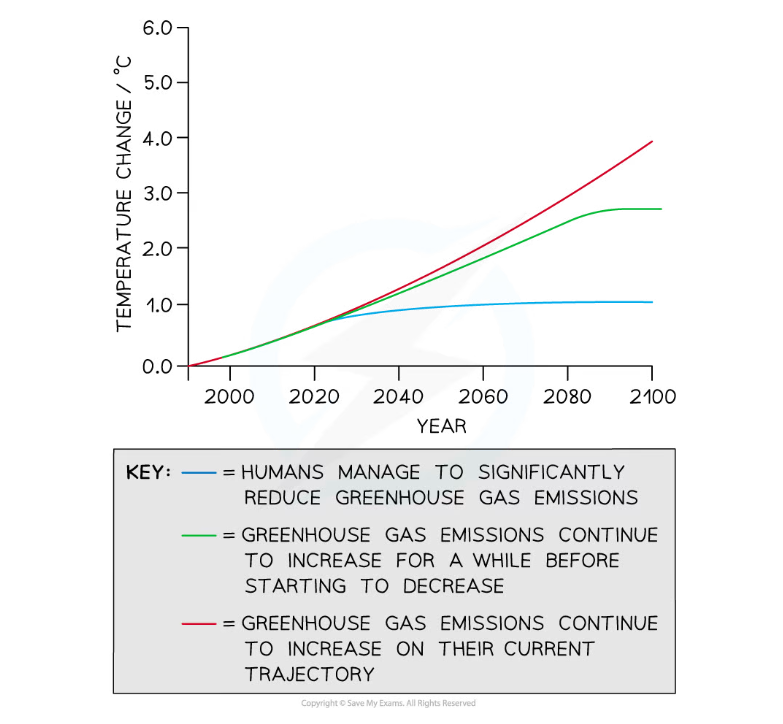- 翰林提供学术活动、国际课程、科研项目一站式留学背景提升服务!
- 400 888 0080
Edexcel A (SNAB) A Level Biology:复习笔记5.3.4 Models of Future Climate Change
Models of Future Climate Change
- It is possible to use existing data relating to global warming to make predictions about global temperatures in the future
- Using data in this way is known as extrapolating from data
- Extrapolated data can be used to produce models that show how the climate may change in the future
- Global warming predictions can be used to
- Plan for the future e.g.
- Building flood defences
- Funding scientific research into climate change technologies
- Encourage people to change their activities e.g.
- Reduce the burning of fossil fuels
- Increase the use of renewable energy sources such as solar and wind energy
- Reduce meat consumption
- Plan for the future e.g.
- The Intergovernmental Panel on Climate Change, or IPCC, is a group of climate scientists around the world that has used existing data to extrapolate how global temperatures might change in the future under different human activity scenarios e.g.
- If humans manage to immediately begin reducing fossil fuel use, global temperature change could be limited to around 1°C
- If humans do nothing to change their fossil fuel use, global temperature increase may exceed 4°C
- The IPCC data can be added to other computer models on climate change to see how different parts of the world might be affected under the different scenarios

Future predictions of temperature change can be modelled on a range of scenarios
- There are limitations to models based on extrapolated data
- The IPCC has produced models based on several emissions scenarios, and we do not know which of these scenarios is most likely
- I.e. we don't know how successful humans will be at cutting greenhouse gas emissions
- We do not know whether future technologies will be successful at removing greenhouse gases from the atmosphere e.g. carbon capture technologies may or may not be effective
- It is unknown exactly how atmospheric gas concentrations might affect global temperatures
- Global climate patterns are complex and therefore predictions are difficult
- It is possible that a certain tipping point in global temperatures could lead to a sudden acceleration in global warming e.g. permafrost melting may cause a sudden increase in atmospheric methane
- Permafrost is ground that is frozen all year round
- It is possible that a certain tipping point in global temperatures could lead to a sudden acceleration in global warming e.g. permafrost melting may cause a sudden increase in atmospheric methane
- We don't know exactly how factors other than human activities may affect climate in the future e.g. a volcanic eruption could increase ash in the atmosphere, reflecting radiation back into space and cooling the earth
- The IPCC has produced models based on several emissions scenarios, and we do not know which of these scenarios is most likely
转载自savemyexams

最新发布
© 2025. All Rights Reserved. 沪ICP备2023009024号-1









